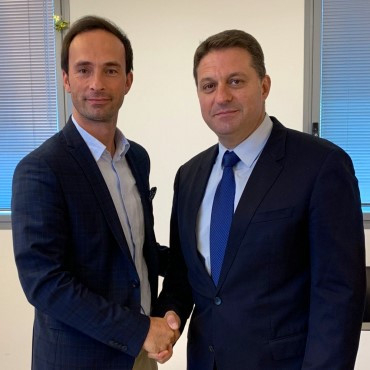
Paweł Grzybowski, Mayor of Rypin in Poland and ECR Member in the Bureau of ARLEM, the Euro-Mediterranean Regional and Local Assembly, participated in an official CoR visit to Palestine and Israel during which he had an opportunity to discuss promoting sustainable development with representatives of EU and Mediterranean countries.
The city of Ramallah and the Association of Palestinian Local Authorities on 30 June hosted a meeting of the executive board of the ARLEM, to discuss how cities and regions can collaborate to achieve the United Nations' Sustainable Development Goals (SDGs). Local and regional leaders, working together in the context of the Union for the Mediterranean, also considered ways to deepen integration and economic relations between local and regional authorities throughout the Mediterranean.
During the meeting, Mr Grzybowski pointed out that every stakeholder must be given a voice in the decision-making process with a view to achieving the SDGs in the EU and the Mediterranean region.
"Civil society, and young people in particular, must be involved if we are to make real progress with regard to the SDGs. This applies both to the EU countries and to our Mediterranean partners who are not EU Members", he said.
ARLEM also organised a meeting with the Federation of local Israeli authorities in Tel Aviv, where Mayor Grzybowski had the opportunity to exchange views with Haim Bibas, President of the Federation and Mayor of Modi'in-Maccabim-Re'ut, and agree that more partnership agreements on sustainable development are needed between local authorities in the EU and Israel to exchange best practices.
ARLEM is an assembly of local and regional representatives from the EU and its Mediterranean partners. It was set up in 2010 to promote interregional cooperation and maintain political dialogue. The framework involves all EU Member States, as well as Egypt, Turkey, Algeria, Morocco, Syria (membership of which is currently suspended), Tunisia, Albania, Bosnia and Herzegovina, Israel, Jordan, Lebanon, Mauritania, Palestine, Monaco and Montenegro.
The SDGs are a collection of 17 global goals set by the United Nations General Assembly in 2015 for the year 2030. Among the goals are clean water and sanitation, affordable and clean energy, as well as climate action. The successful implementation of most of them depends largely on the actions and commitment of local and regional authorities.

